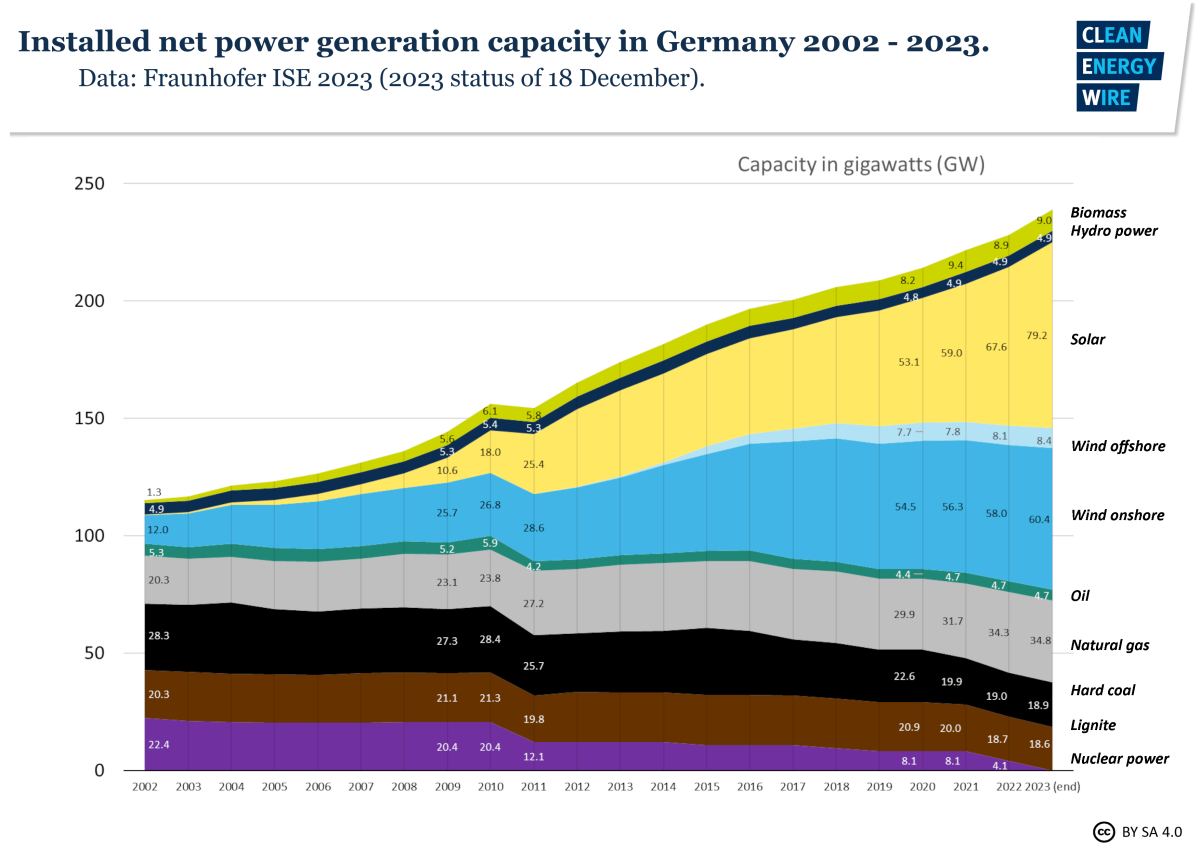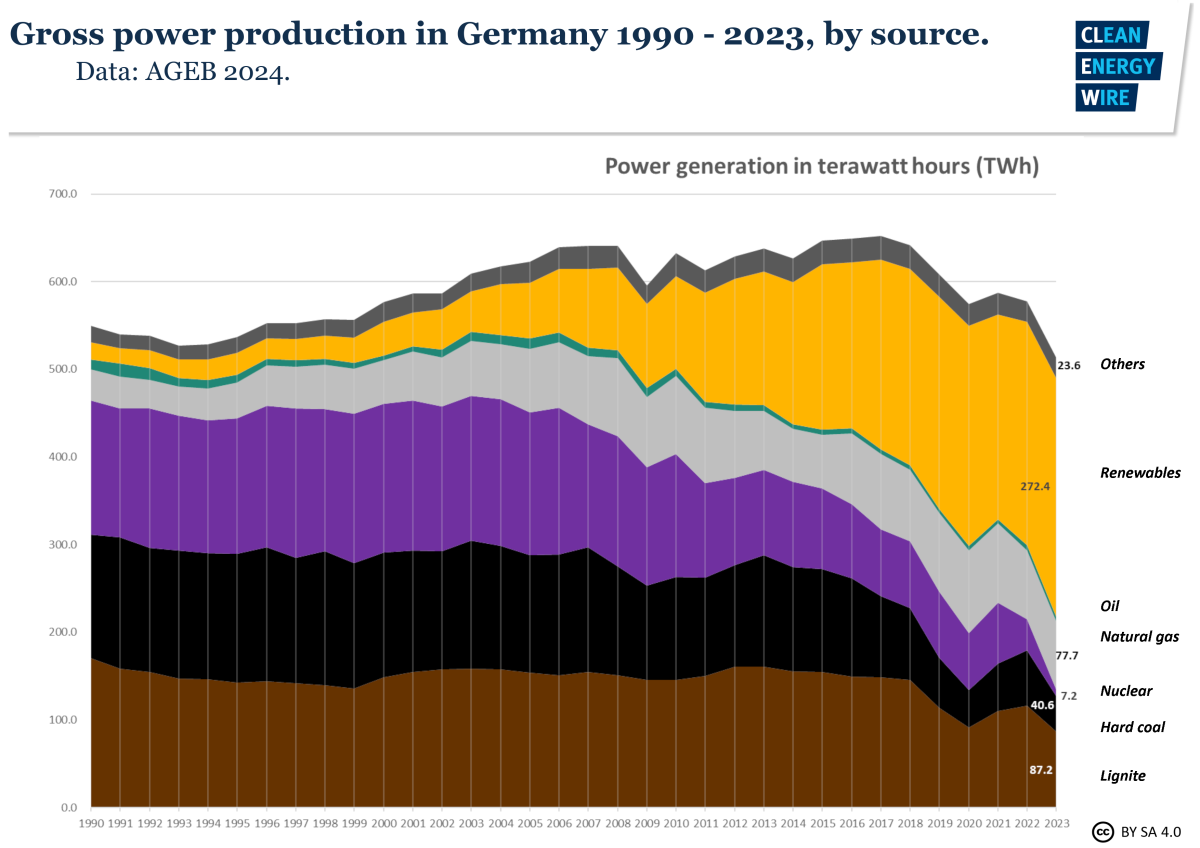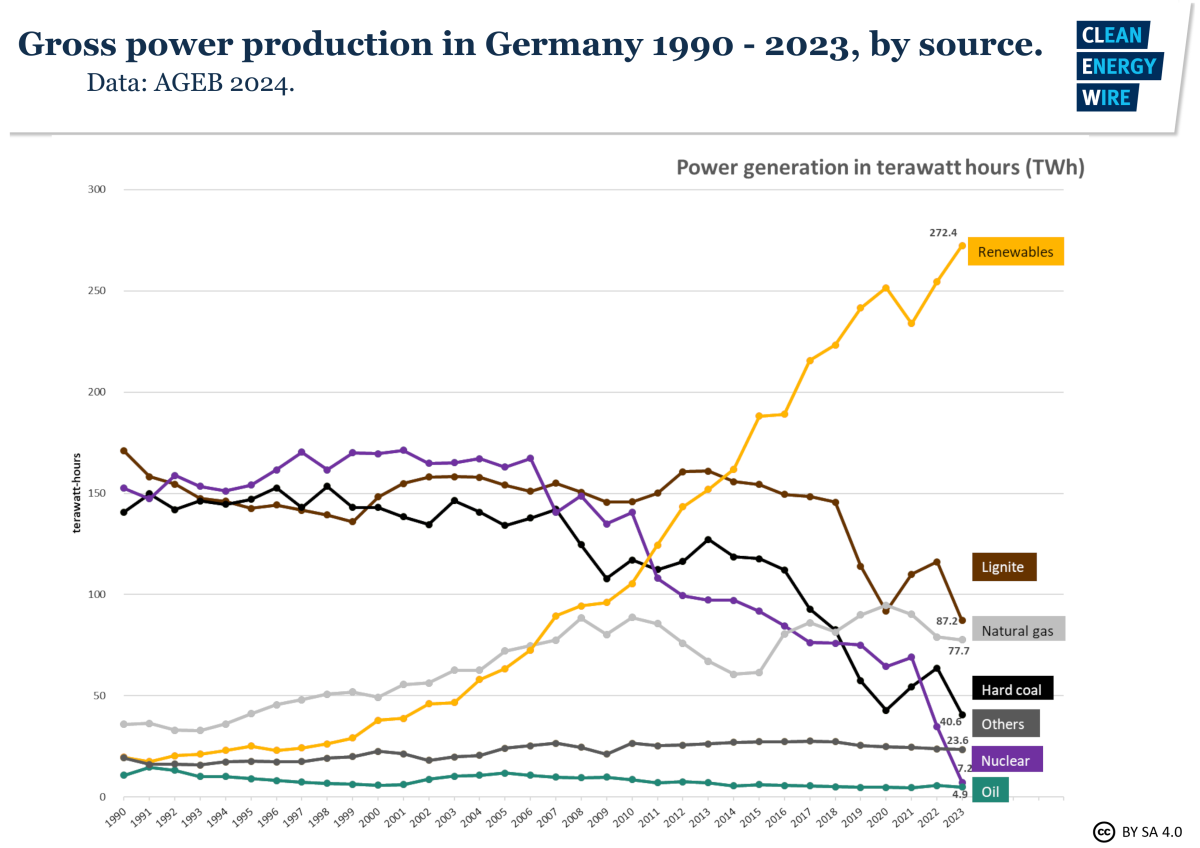Now think about how much lower it could have been with nuclear power.
Not much, since it covered only about 4% of the demand to begin with. Plus billions in compensations for nuclear companies if the plans had been changed again. Plus Billions to transport the waste through the country again and again because there is no storage safe enough on the long term. All of that money is by far better invested in renewables.
They have been searching for more than 30 years to hide the last nuclear waste somewhere and still haven't found a suitable place. That's why they don't want nuclear power.
Here is were we in scandinavia can step up, we have a stable bedrock and modern technology to drill into the ground.
Let us build a few permanent storage sites with secure handling facilities and sell space to other countries needing it.
Ontario, Canada this year is supposed to be choosing which of 2 proposed storage sites will be chosen for development. Nuclear power is a major part of the grid there, representing something like 35% of capacity and 55% of output. The generation facilities are geographically well situated, with one station being <100km away from a proposed storage site and two others within 250km.
I wonder what kind of risks there are with accidents during long distance transportation. Ships sink, trains derail, and trucks have accidents.
Thank you Germany, that's impressive
The good news is that the current government has systems in place, which should bring something like 79% of emissions to zero by 2050. What is really lacking is agriculture and trucks. There are plans to increase taxes on trucks to include a carbon price of 200€/t, which should help. Some of the EU agricultural legislation would also help with agricultural emissions, but those will propably never go to zero anyway.
The bad part is most of it is way to slow.
I think Germany should have kept open their nuclear power plants as long as they could. But I don't think opening new ones was the right idea.
Hopefully they keep making the gains they have.
No.
Schacht Konrad was a bad idea. Gorleben would've been a bad idea.
La Hague and Sellafield were bad ideas.
Nuclear risk aversion is democratically decided.
Nuclear energy discourages wind energy expansion, which is the better path for Germany IMO.
100% this, but idiots gonna complain because big oil pays propaganda to push nuclear wich needs years to build and is unreliable.
Hang on you are saying nuclear power has always been a bad idea? That a bit of an unusual view.
What I'm saying is it was good before wind and solar and is still cost effective to keep ruining once built. But I dont think new nuclear power plants should be built unless it's for national security.
The combined risk of posthumanity pollution and catastrophic failures makes it a no-go for a risk averse society. Germany is spatially a comparably small country with high population density, there is not really a place where you easily can say no one lives here for the next thousands of years.
La Hague and Sellafield are or were places of necessary production chain segments with high pollution danger and history.
Zaporishja shows how dangerous centralised power production can be.
PV and wind energy were politically advocated for in Germany (California as well btw) before they were cheap and mass produced and efficient, even or especially against nuclear energy.
Austria actually is somewhat of a success story with a similar history.
It was always a bad idea and humanity should never have touched uranium at all. Would have saved us so much.
I don't know about that some of the new gen 4 reactors that are starting to come out effectively tackle a lot of the downsides like cost or the need to store waste.
I don't think a 100% nuclear solution is a good idea but it sounds like it'll have its place in a future national energy portfolio for a lot of countries.
It is expensive to run, has the same sort of issues with fuel procurement from potentially hostile countries as fossil fuels, has waste storage issues and takes ages to build. Cooling is also very vulnerable to droughts in the water sources used for it. There really aren't many arguments in its favour.
That's specifically why I said gen 4 reactors. They can take a broader array of fuel, recycle high level radioactive waste into energy, and are capable of being built as small modular tractors shortening cost and time for production. Additionally they also can use less water than existing light water reactors.
They do have the benefits of using a low amount of space, offering consistency regardless of environmental factors, having a longer service life, and being very efficient.
I remembered vividly when some people predicting soaring high coal electricity generation would occur in Germany for 2023 back in April. Of course, those who had been studying the actual Energiewende for a while knew that would never be the case.
Interestingly, most of Germany import in 2023 was also from renewables. One could say that German coal has been beatened by growing renewables both at home and abroad.
Here's the graph over time.

Since this is capacity, intermittent sources like renewables will be overrepresented compared to actual usage, but the trends should still be accurate.
Edit: nvm, here's actual usage


Some good looking graphs there.
Really living in a notable period of history right now. People will be reading about this time 100 years from now.
It's the curse of "May you live in interesting times"
For real now? I thought they were going back to coal?
That's what the propaganda keeps saying. I wonder why...
Germany based.
Green Energy
Everything about energy production and storage.
Related communities: